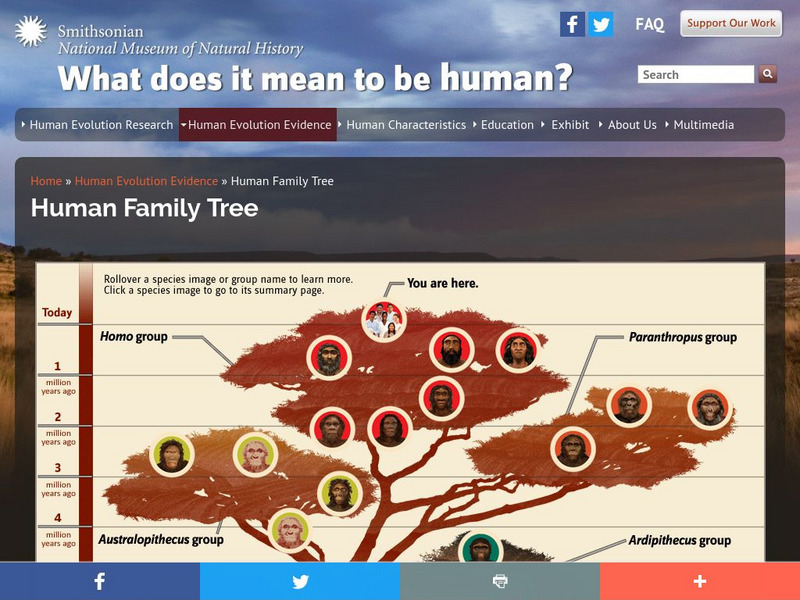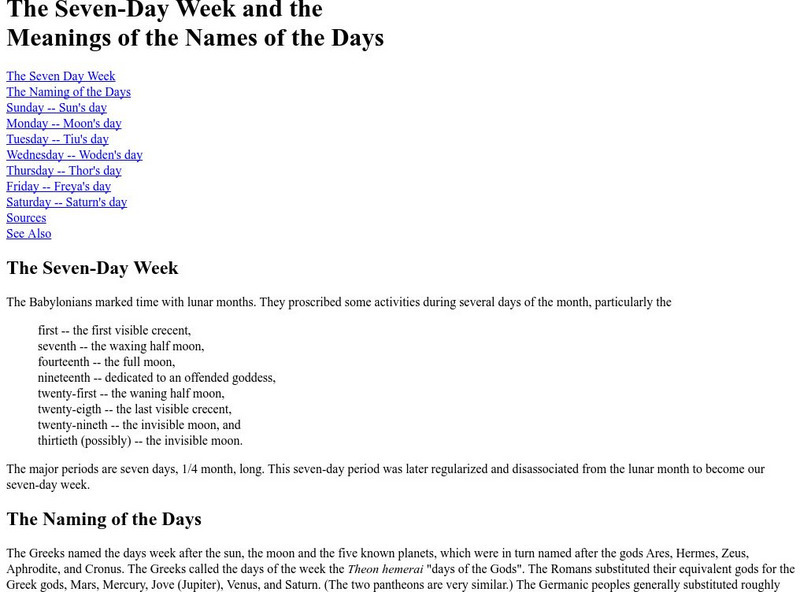Curated OER
Using a Dictionary
What can we find in a dictionary? Your scholars may be surprised to hear that it's more than just definitions. They explore this resource by finding word meanings, uses, and origins in this vocabulary worksheet. Learners look up five...
Curated OER
In Search of Human Origins, Part II
Students watch a video about the search for human origins. Using a worksheet, they identify the data trends in height of boys in North America. They discuss the significance of the data and the reasons for the increase of human size.
Curated OER
Science: Arsenic and Old Lace
Learners read about specific instances of arsenic in history and share these stories with each other. They identify, after reading the articles and sharing, what role arsenic played, how arsenic enters the system and what its effects...
Curated OER
VH1 200 Greatest Pop Culture Icons Lesson 2
Students examine the origins of ragtime music in American and analyze its musical form.
Curated OER
Evolution
Students investigate the concept of evolution and its implications upon the origin and development of life. They conduct research using a variety of resources while focusing upon cross-over and mutations. The information is used to set...
Curated OER
An International Menu
Students research etymologies using dictionaries. They explore the diverse origins of the common foods they eat after making a list of their favorite foods.
Curated OER
Exploring the Celestial Neighborhood
Ninth graders study the origin and organization of the solar system. They investigate the Earth's place in the system and how planetary motions explain natural phenomena observable from Earth.
Exploratorium
Exploratorium: Origins
A resource rich is scientific research investigating the origins of matter. Find strategic locations of observatories, the scientists conducting the research, tools used to study the world, and how the ideas of one scientist might impact...
Other
American Scientist: Author Interview: Neil De Grasse Tyson
Astrophysicist Neil deGrasse Tyson has made "Popularizing science a personal passion." Tyson's latest book, Origins, is the starting point here for a discussion of dark matter, intelligent life in our solar system, the possibility of...
Smithsonian Institution
National Museum of Natural History: Human Origins: Human Family Tree
Find the human ancestor you are interested in and click on it either in the timeline or the list below for more details. Each fossil or reconstruction pictured includes links to more details about it.
Woodrow Wilson International Center for Scholars
Woodrow Wilson Center: Digital Archive: Cold War Origins
This collection of primary source documents discusses international relations during World War II and the years shortly after. It begins with the Molotov-Ribbentrop Pact signed in 1939 and ends with documents from the 1950's. The...
Exploratorium
Exploratorium: Where Do Languages Come From?
A most interesting site! Explore why the French speak French in France and the English speak English in England and lots of other information on the history of words and languages.
Other
The Days of Genesis 1
You must scroll down to the section titled "The Early Church and the Day-Age Theory" to begin specific reading on St. Augustine's interpretation of Genesis 1; however, the information leading up to it is valuable as well. Provides...
Other
Carbon 14 Dating
Seven pages all about Carbon 14 Dating. Information on half-life, Carbon 14 used to date specimens and artifacts, limitations, charts and graphs. Michael E. Brown Ph.D. contests that the limitations of Carbon 14 dating support the theory...
Smithsonian Institution
National Museum of Natural History: Homo Habilis
This resource provides graphics, as well as explanation, of the remains of Homo habilis.
Other
The Seven Day Week and the Meanings of the Names
Ever wonder why Thursday is called Thursday? Find the answer to this and other word origins.
Other
The Phrase Finder
Use this tool to find the origins and meanings of phrases, sayings and cliches.

















